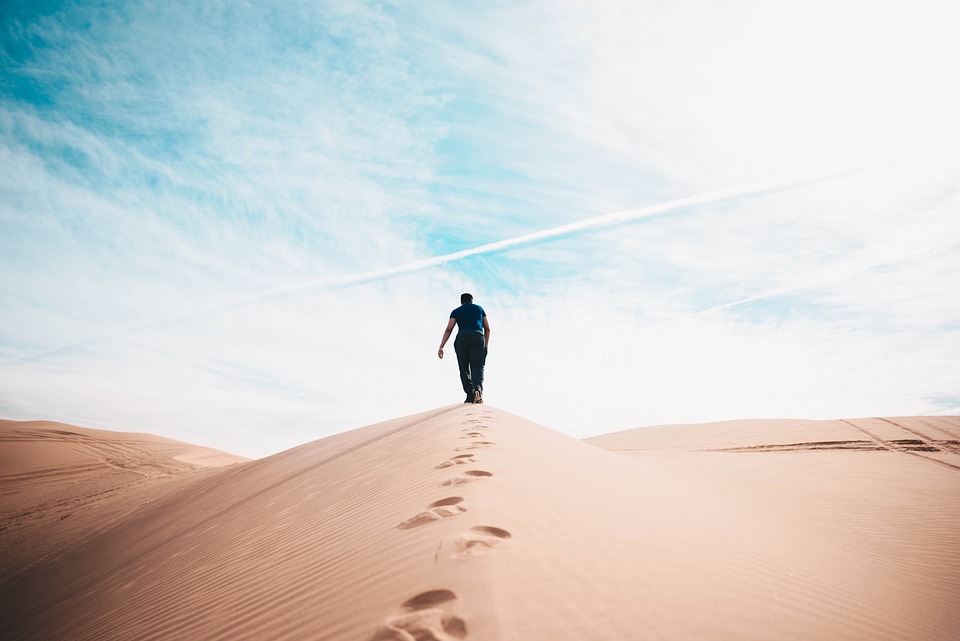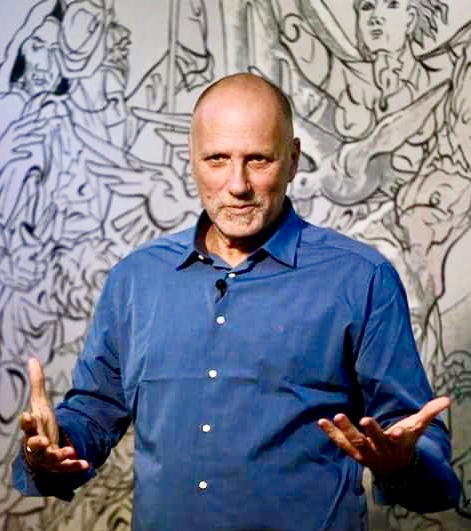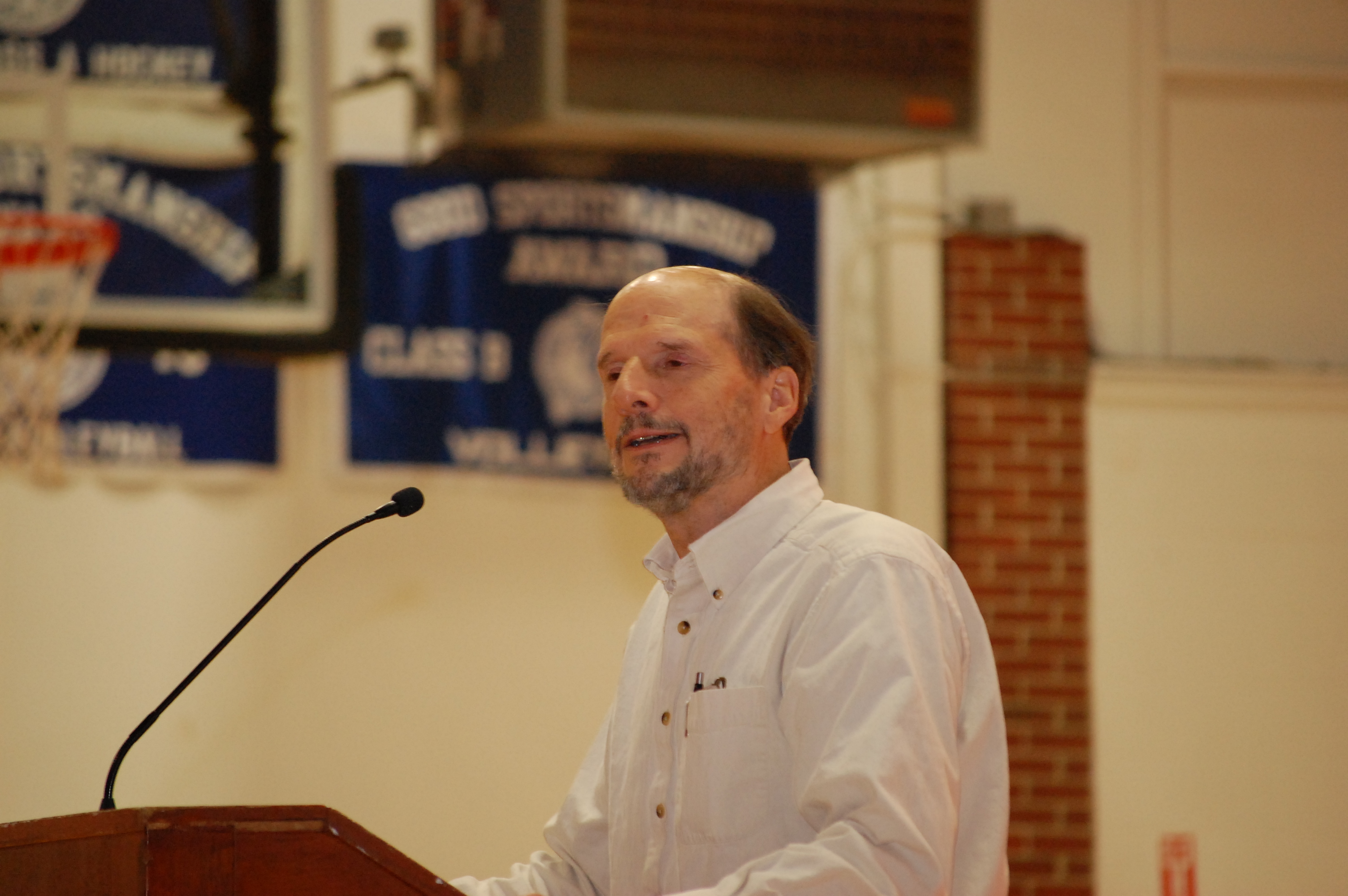Can You Imagine Surviving the Sahara Desert Alone? The Mauro Prosperi Story
Imagine being stranded alone in a desert, with no food, water, or idea of where to go or sleep. It's a terrifying thought, but for Mauro Prosperi from Italy, it became a harsh reality. Mauro, a police officer and former Olympic pentathlete, was always drawn to adventure and risk. His curiosity led him and his seven-year-old friend Giovanni Manzo to discover the Marathon des Sables, a gruelling race covering 251 kilometers over seven days. Little did they know, this marathon would test not just their athleticism, but their survival skills.
The Marathon des Sables, also known as the Marathon of the Sands, is renowned as the toughest race on Earth. Participants must carry all their food and gear for the week-long journey on their backs. Each night, they set up goat hair tents for shelter, taking them down again the next morning. Water is strictly rationed, with penalties for exceeding the limit. It's a true test of endurance and resilience, where every step counts in the unforgiving desert terrain.
Prosperi, who was 39 at the time, remembers the tough marathon of 1994 vividly. "I loved a challenge, so I trained hard for this marathon. I ran about 40 kilometers every day and cut back on water to get used to dehydration. It wasn't easy, and my wife thought I was crazy for signing up for a race where you have to specify what to do with your body if you die."
After intense training, Prosperi flew to Morocco for the marathon. Today, the race attracts around 1,300 participants each year, but in 1994, there were only 134. Prosperi felt the weight of responsibility on his shoulders during the six-day event. On April 10, 1994, in Morocco's Foam Zuid, Prosperi started the ultramarathon with Manzo and 80 others. Over the first three days, they covered 96 kilometers of salt beds, mountains, and sand dunes. Despite starting together, participants soon spread out, each running mostly alone at their own pace.
Following marathon rules, Prosperi packed food, clothes, a sleeping bag, compass, portable stove, and an emergency kit with a signal flare. Water was available at race checkpoints.
On April 14, the fourth and longest leg of the marathon covered 85 kilometers. By noon, Prosperi passed Manzo and moved into fourth place. The temperature soared to 46 degrees Celsius, making the air scorching hot. At around 32 kilometers into the race, Prosperi encountered small sand dunes. He tried to speed up by crossing them, but strong gusts of wind suddenly kicked up, creating a sandstorm. Despite the poor visibility, Prosperi pressed on, believing he could still see the marathon track and stay on course, unaware of the reality.
In 1998, speaking to Men's Journal Magazine, Prosperi said, "When the sandstorm hit, I couldn't see anyone else. But I kept running, thinking I could still see the marathon track. I was in seventh place and didn't want to lose it. When it got dark during the storm, I started running again. But soon, I realized I was lost."
Prosperi wandered for hours, but it got too dark to see the trail markers. He set up camp for the night, low on food and water. Following race rules, he waited on the sand dunes for a rescue team. A helicopter flew over but missed him. The next day, he decided to move again. Speaking to the BBC later, he said, "I had a compass and a map, so I thought I could navigate. But not knowing my exact position was tough."
From a distance, I spotted a ruined building. When I got closer, I realized it was Marbout, a Muslim pilgrimage site. I hoped to find someone there, but it was deserted. Still, it offered some shelter. Prosperi made it his home, hoping rescuers would find him. He rationed his food, cooking it with urine for moisture. He licked dew from rocks for hydration and built a structure on top of Marbout for visibility. As his food ran out, he ate bird eggs, beetles, bats, and lizards, anything to survive. He used anti-diarrhoea medicine to preserve water.
On the fourth day after Mauro Prosperi got lost, another plane flew over, but he couldn't get its attention, even after making an SOS sign in the sand and lighting a small fire. Then, a sandstorm came and lasted for twelve long hours, leaving him alone again. Feeling hopeless and thinking no one would ever find him, Prosperi wrote a farewell message to his family with charcoal. He even tried to end his life by cutting his wrist with his pocket knife and waited through the night for death to come. In a 2014 interview, he said he felt really sad and believed he would suffer a painful death. He wanted to die quickly so his family could get financial support, as in Italy, missing persons can't be declared dead until after ten years. He hoped his body would be found at the Muslim shrine, ensuring his family would receive.
The next morning, Mauro Prosperi woke up and saw his wrist wasn't bleeding much because blood had clotted in his veins due to dehydration. This gave him hope to keep going. He decided to move during the cooler parts of the day, early morning and late evening, heading towards the mountains. He thought he was going towards the marathon track, but he was actually going deeper into the desert. After eight days, he found a desert oasis, a big water pool. He drank too much too quickly and vomited, learning to take small sips every ten minutes. Finally, he quenched his thirst and filled up some water to continue. He found goat droppings and followed the human footprints nearby. He spotted a girl grazing animals from a hill and ran to her, begging for help.
The girl was from a Tuareg caravan. She gave Prosperi goat milk and took him on a camel to a nearby village. Even though the marathon was in Morocco, Prosperi ended up traveling about 290 kilometers into Algeria. At first, the local military police questioned him because of tensions between the two countries, but they took him to the hospital after learning his story. Prosperi had lost about 16 kilograms during his ordeal. When he was rescued, he only weighed 45 kilograms. Doctors said his liver was almost completely failed, so they gave him 16 liters of fluid to hydrate him. After returning to Italy, it took him months to recover and he couldn't eat solid food for a while. Some people doubt his story, saying it's impossible, but others believe him. What do you think? Share your thoughts in the comments.











